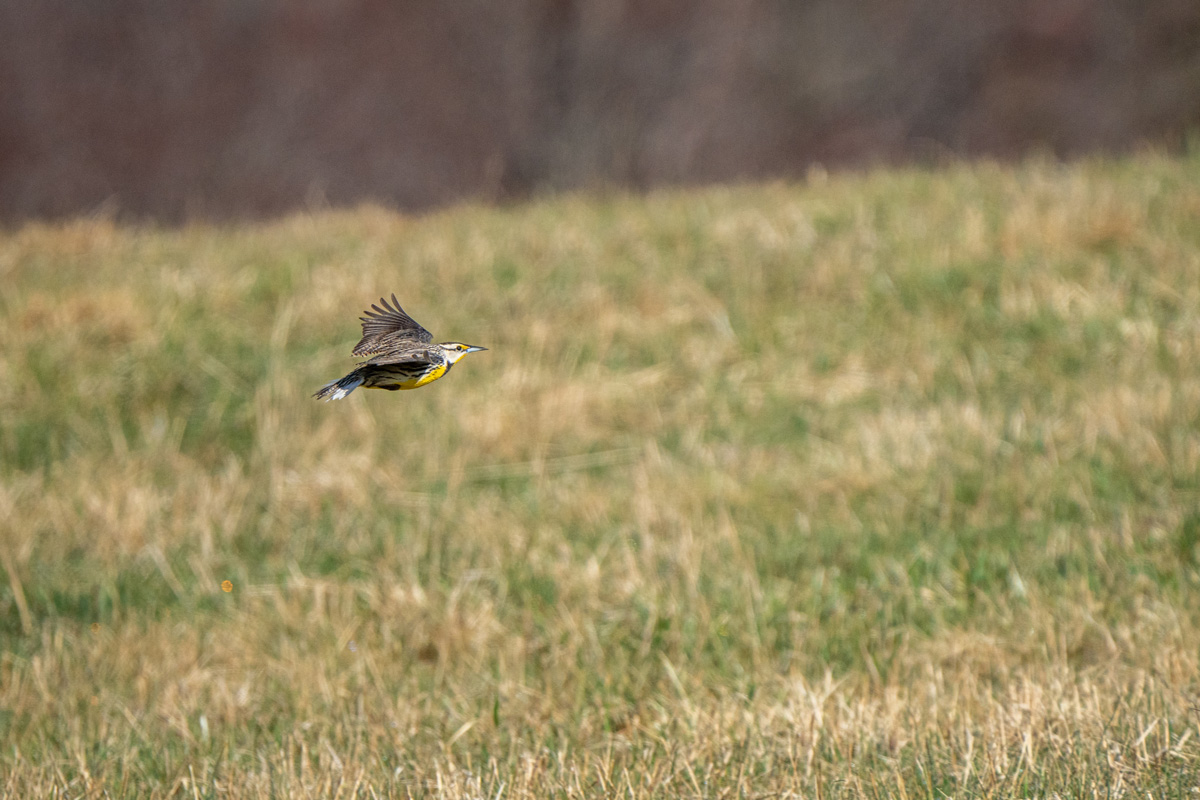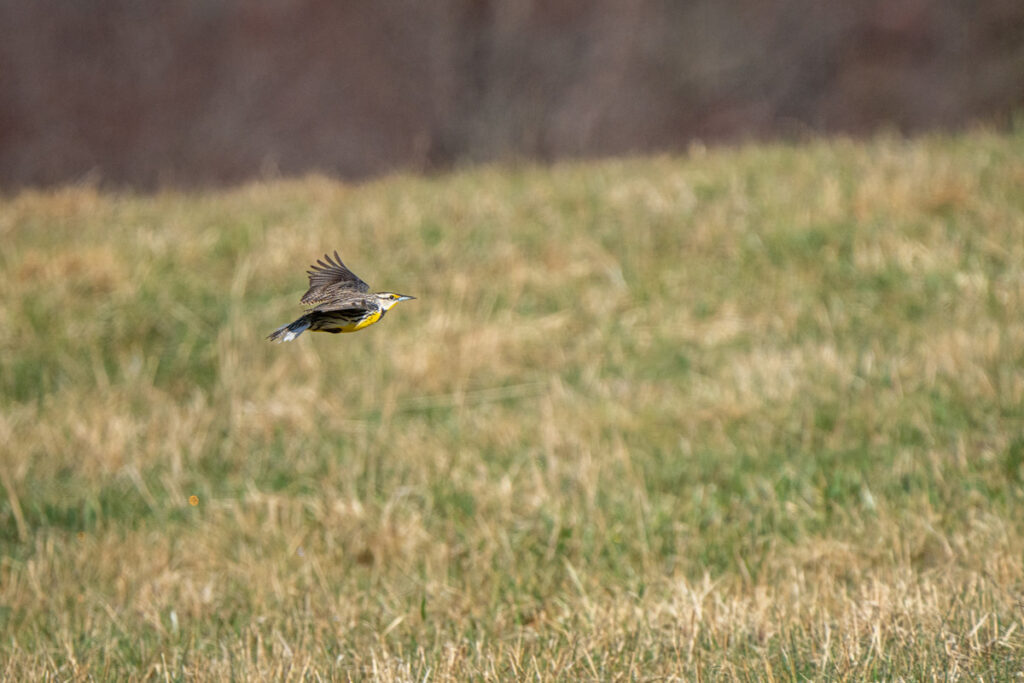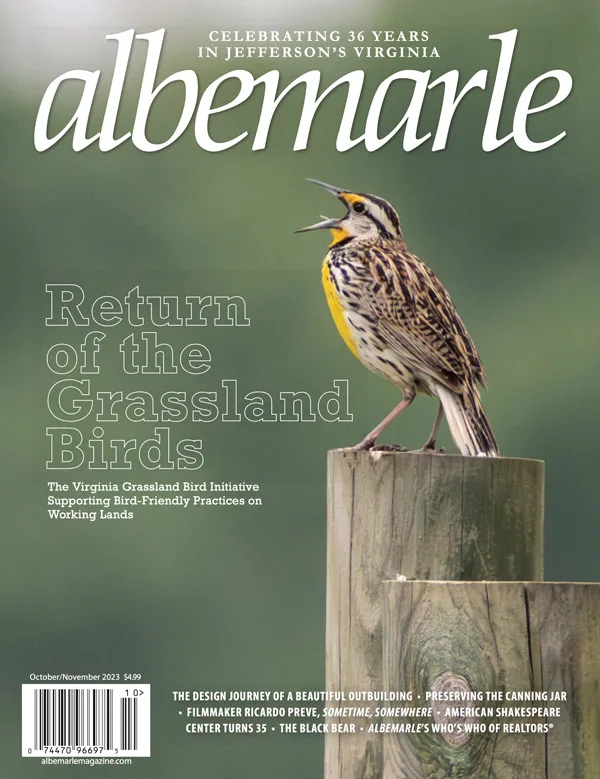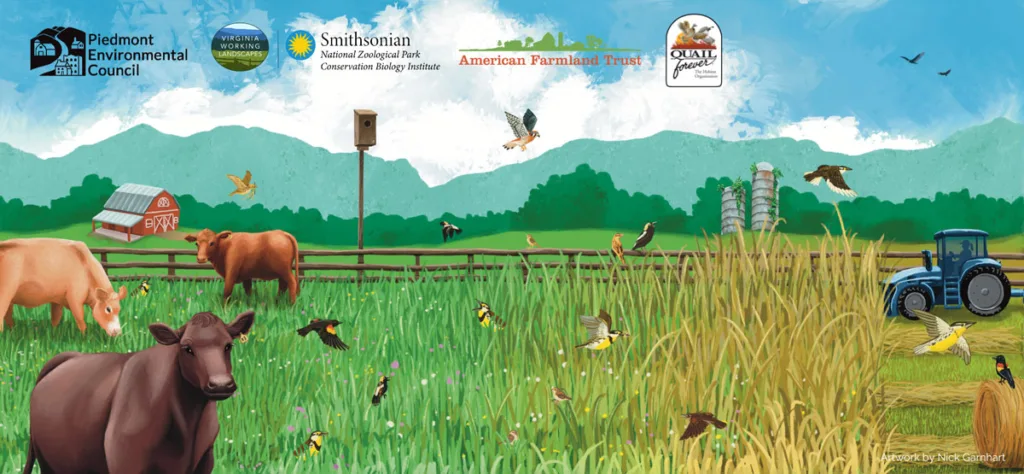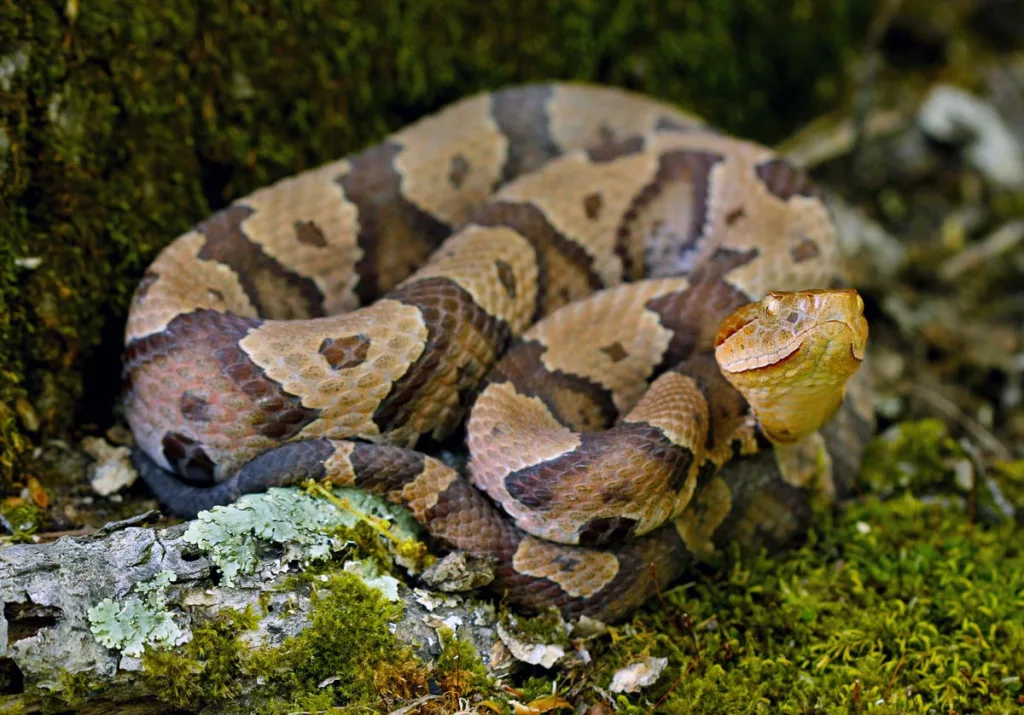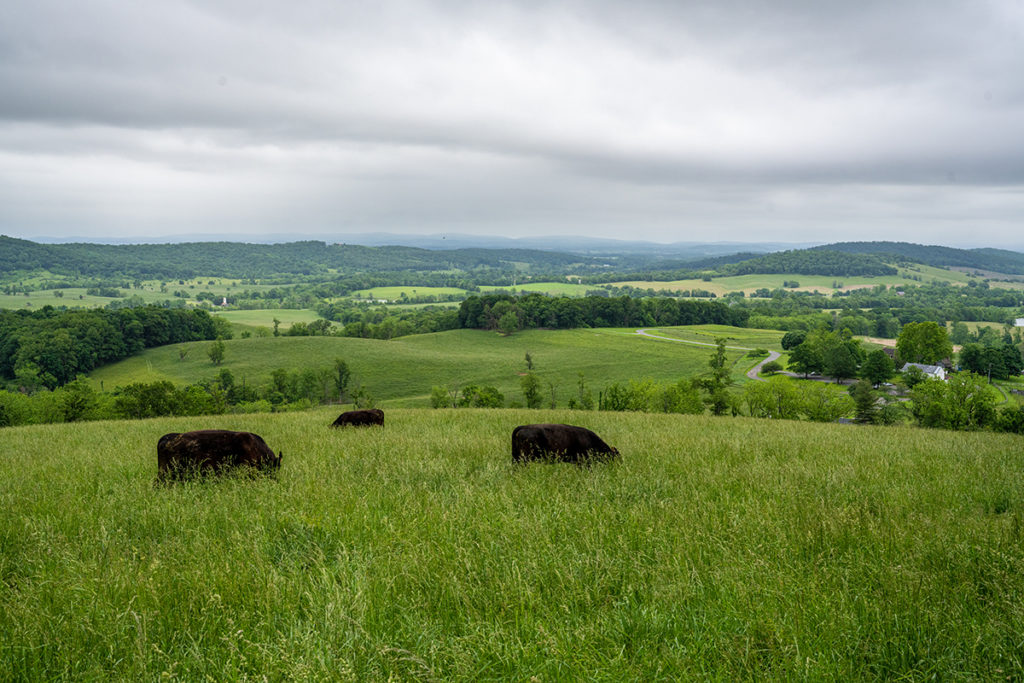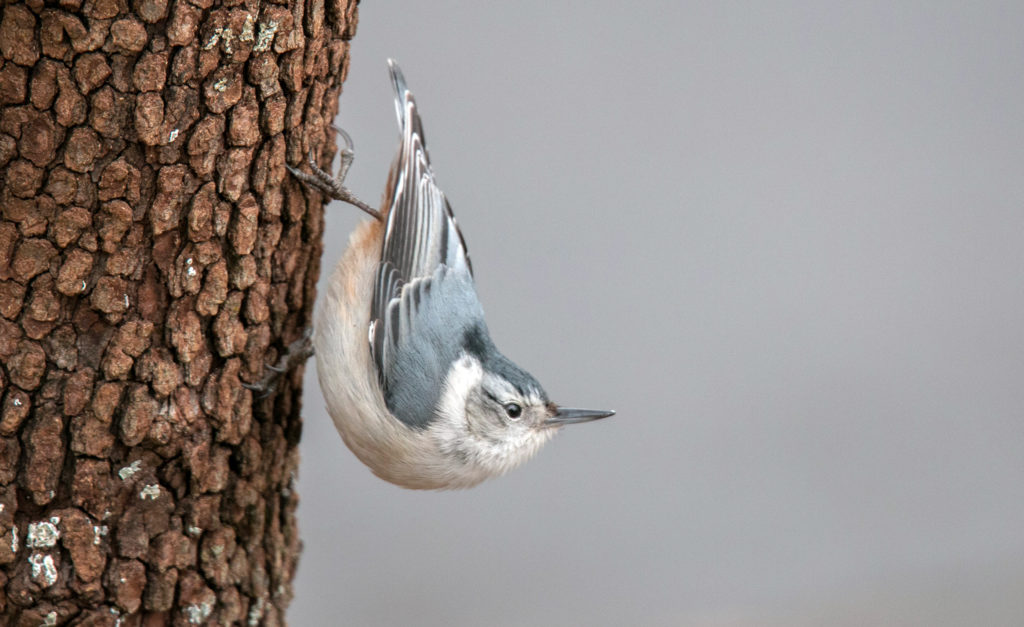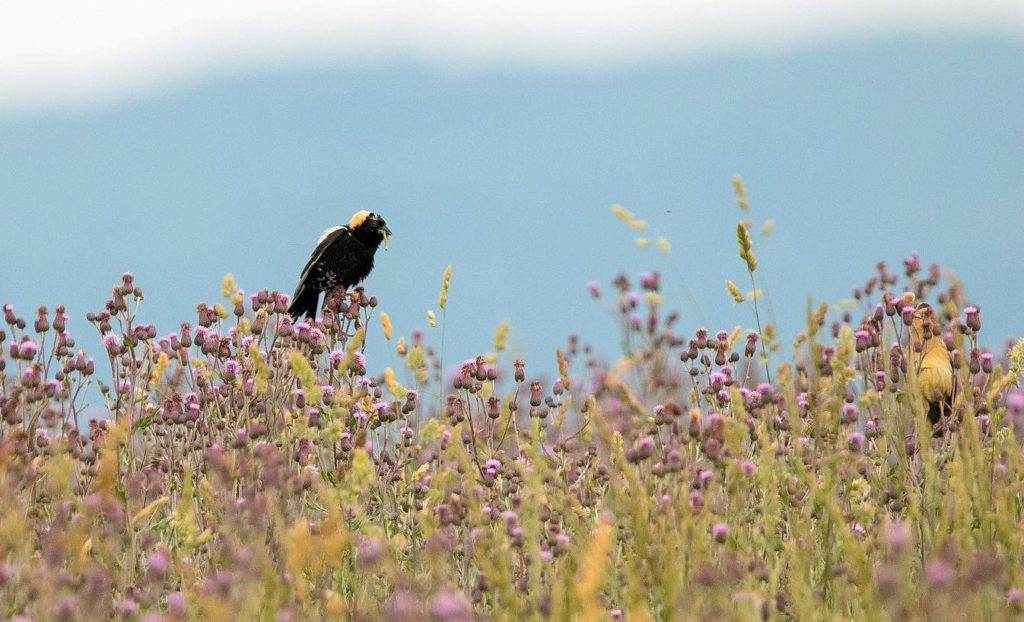This text was taken from an email alert sent out on Oct. 29, 2024. Sign up for email alerts →
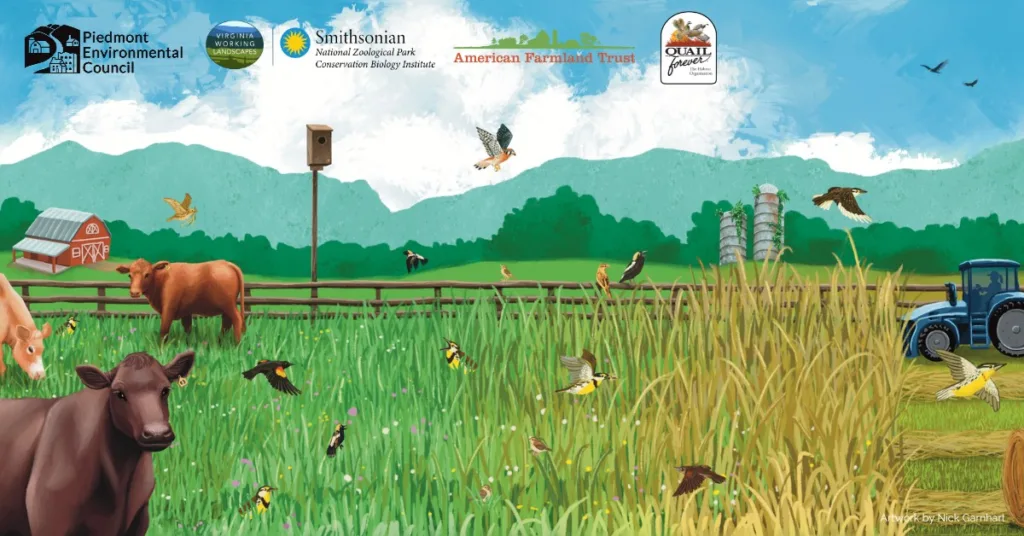
Dear Supporter,
I’d like to share exciting news about our Virginia Grassland Bird Initiative, entering its fourth season in 2025. VGBI is a collaborative effort of PEC, Smithsonian’s Virginia Working Landscapes, Quail Forever and American Farmland Trust working together with landowners and farmers to restore grassland habitat for the benefit of birds and farms across the Virginia Piedmont, Blue Ridge and Shenandoah Valley.
Native grasslands have suffered a more intense impact from humans than any other North American terrestrial ecosystem. In response, remaining grassland birds have begun to rely on hayfields and pastureland as their primary habitat. VGBI gives landowners and farmers the tools as well as the technical and financial assistance to help protect these grassland birds while benefiting their agricultural operations.
Financial incentives program application open through Nov. 15
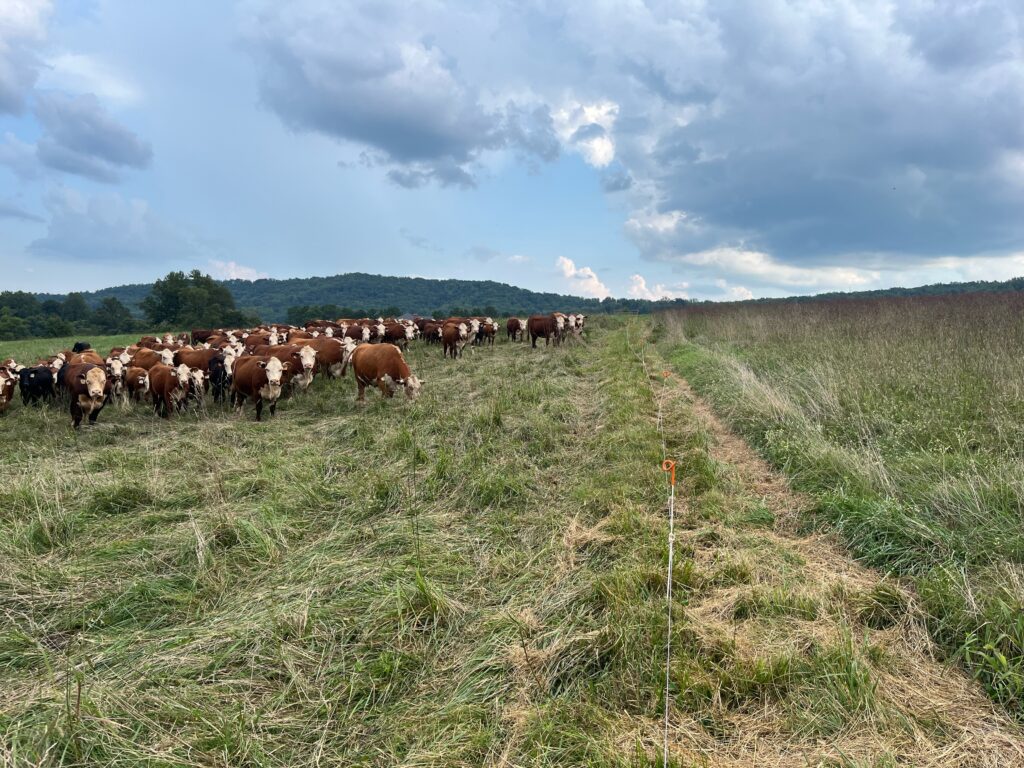
Open to 16 counties, VGBI’s financial incentives program pays farmers $35 per acre for delayed haying and/or summer pasture stockpiling during the grassland bird nesting season. Both practices balance grassland bird conservation and long-term production goals by allowing ample time for 80% of nesting grassland birds to successfully fledge before farmers cut hay or rotate cattle into select fields.
Since 2021, 46 farmers have formally enrolled 3,000 acres of land into our financial incentives program, and 28 have implemented delayed haying or summer pasture stockpiling on another 3,000 acres voluntarily, without the financial incentives.
This year, the National Fish and Wildlife Foundation and the U.S. Fish & Wildlife Service have provided funding to support enrolling new properties in the program!
Submit your application today at vagrasslandbirds.org/incentives. Landowners who already participate in grassland bird-friendly land management or would like to participate in our program without receiving financial incentives can fill out this form.
Resources

VGBI has been hard at work developing new resources to make it easier for landowners and folks to learn about our work. These resources include information on best management practices for grassland birds, native plantings for quail, and riparian buffers for wildlife. Check them all out here or link to them individually below:
- Factsheet: Raise the Blade
- Factsheet: American Kestrel Nest Boxes: Stewardship and Monitoring
- Factsheet: Best Management Practices (BMPs) for Grassland Birds
- Factsheet: Native Plantings for Quail
- Pamphlet:Riparian Buffers for Wildlife
Out & About with VGBI
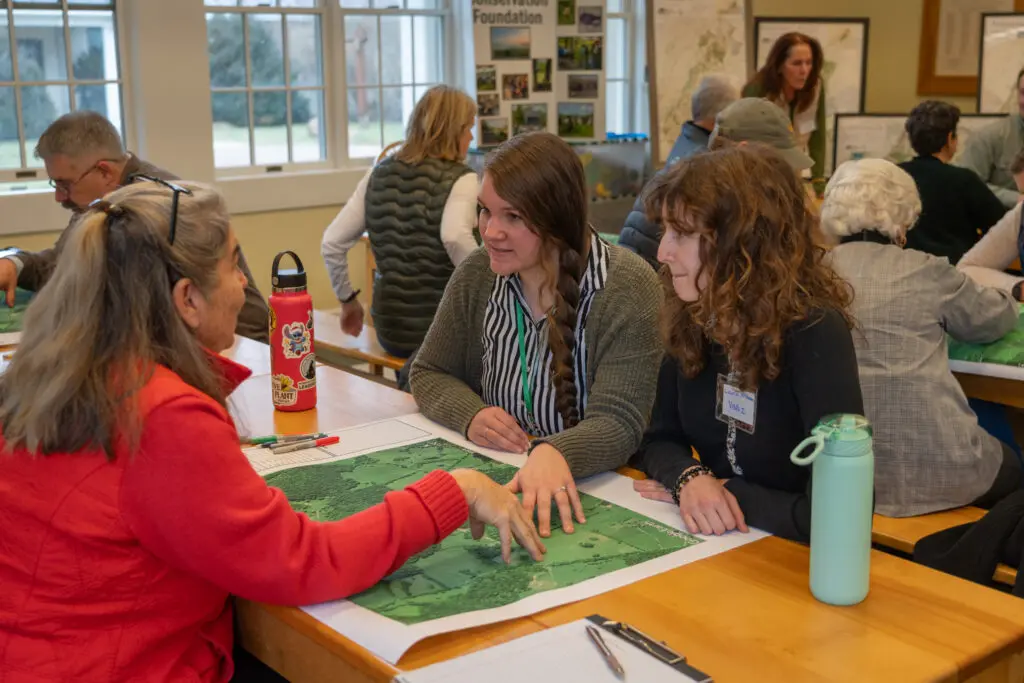
Spreading the word about declining grassland bird populations and sharing strategies for implementing grassland bird-friendly best management practices is a crucial step to actually solving the problem. That’s why our team has been busy traveling and giving presentations to conservation groups, other land trusts, landowners and farmers.
Conservation Speed Dating Workshops
VGBI has been getting to know landowners in the region with our intentionally-intimate Conservation Speed Dating workshops. These have become a great way for landowners and producers to get to know local conservation experts who can share their full suite of (technical and financial) resources, knowledge, and programs their departments and organizations can provide. Local staff from NRCS, Soil and Water Conservation Districts, land management companies and nonprofits engage one-on-one with each participant, discussing how their programs apply specifically to each landowner’s property and conservation goals, using a large, hard-copy map of each property as a focal point for discussion.
Since 2023, we have held about a dozen of these workshops across VGBI’s 16-county region, with more planned for this winter! You can read more about these workshops here.
Conferences across the Region
VGBI recently traveled to Vermont to present about our collaborative work at the Northeast Bird Habitat Conservation Initiative (NBHCI) partner meeting. It was attended by conservationists from Virginia to Maine to learn about bird conservation in northeastern grasslands and forests. I worked in partnership with Sara Barker from the Cornell Land Trust Bird Conservation Initiative, Jennifer Brockway of Ag Allies, and Zoe Warner of the Grassland Bird Collaboration to give a presentation in Rhode Island at the Land Trust Alliance (LTA) Rally titled “Collaborative Conservation: Managing Working Grasslands for People and Birds.”
We also recently presented about our Conservation Speed Dating Workshops in Fredericksburg, Va., at the Rappahannock River Symposium hosted by the Rappahannock River Roundtable. In case you missed any of these opportunities, we’ll be presenting at their next event, Land & Water Conservation: Carbon, Easements & Cost-Share Opportunities, this Thursday, Oct. 31.
Upcoming Event:

Carbon & Conservation Workshop
Oct. 31st, 11 a.m. -2 p.m., Standardsville, Va.
Join PEC, Rappahannock Carbon and others on Oct. 31 in Greene County to learn about forest carbon, conservation easements, and other climate-smart conservation programs and opportunities available to landowners.
Rappahannock Carbon is a program offered by the Rappahannock River Roundtable to assist landowners in conserving their forests by utilizing carbon market resources and conservation tools. The Piedmont Environmental Council will provide information about land conservation opportunities available to landowners.
If you have any questions about PEC’s grassland bird work and how you can get involved, please don’t hesitate to reach out to one of our team members.
Sincerely,
October Greenfield
Wildlife Habitat Restoration Coordinator
VGBI Co-Coordinator
ogreenfield@pecva.org
(540) 347-2334 ext. 7051

